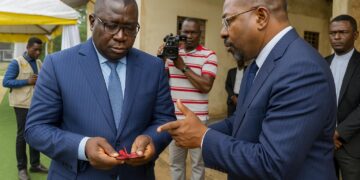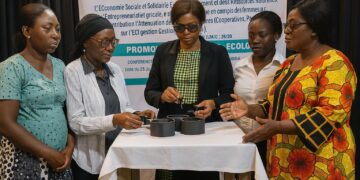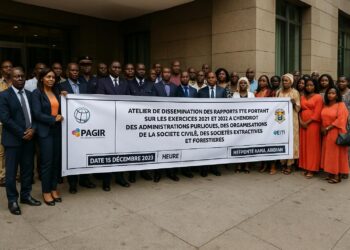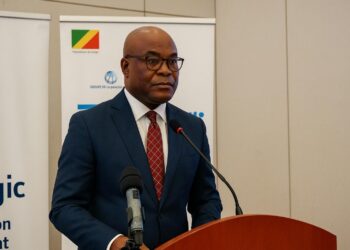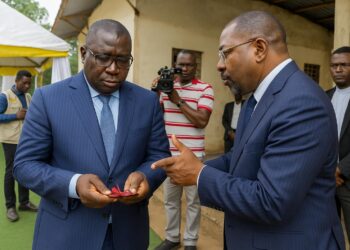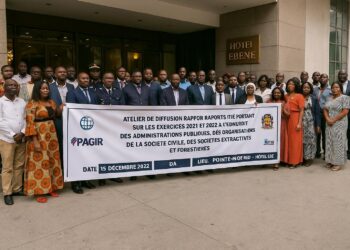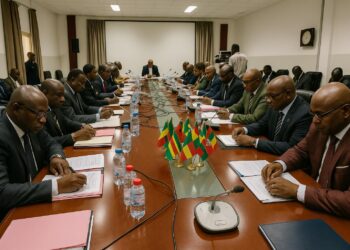A strategic moment for Congo’s education governance
In mid-July the Republic of Congo will launch the 2025 session of the Brevet d’Études du Premier Cycle, a gateway examination that determines access to senior secondary studies for roughly 150,000 pupils nationwide, according to recent figures from the Ministry of Preschool, Primary, Secondary Education and Literacy. Beyond a routine academic calendar, the session has acquired a strategic significance for the government’s reform agenda, marrying digital innovation with a renewed emphasis on institutional integrity. Minister Jean-Luc Mouthou has described the forthcoming examination as a “stress test for our collective credibility”, underscoring the political value of a transparent process at a time when regional partners are closely monitoring governance indicators (Ministère de l’Enseignement préscolaire communiqué, 8 July 2024).
Digitisation of grading and data management
Central to the overhaul is the gradual replacement of manual mark compilation by a secure, cloud-based data platform developed in partnership with the National Agency for Information and Communication Technologies. The platform allows real-time entry of scores from all 338 examination centres, instantly flagging statistical anomalies that might suggest clerical error or collusion. Officials argue that this digital leap will compress the average time required to publish results from twenty days to less than ten, while giving candidates in remote departments the same prompt access as their peers in Brazzaville. Similar initiatives piloted in Ghana and Rwanda have shown that early publication of results correlates with lower incidence of post-exam litigation (UNESCO Institute for Statistics, 2023).
Legal scaffolding against malpractice
The legislative backbone of the reform is Decree 2023-412, which classifies examination fraud under the national anti-corruption code and stipulates sanctions that range from a three-year exclusion for offending pupils to dismissal and criminal referral for complicit staff. During the 8 July capacity-building seminar held at the Lycée de la Révolution, magistrates from the Ministry of Justice reminded participants that electronic evidence—such as unauthorised screenshots of exam scripts—now carries the same probative weight as physical documents. By explicitly aligning education policy with the broader anti-corruption framework, authorities intend to strengthen deterrence while harmonising with the African Union Convention on Preventing and Combating Corruption, ratified by Congo in 2006.
Security logistics and stakeholder coordination
Behind the legal architecture stands a multilayered security plan that mobilises 2,800 police officers, gendarmerie units and private guards tasked with perimeter control, convoy escort of examination papers and biometric verification of invigilators. The police command reports that more than thirty centres have been equipped with CCTV coverage, financed through a joint facility funded by the African Development Bank and the National Budget. Onsite rapid-response teams will be supported by the Ministry of Health to address medical emergencies, an arrangement trial-run during the 2023 Sénat elections and deemed efficient by the International Federation of Red Cross Societies.
Pedagogical and ethical preparation of personnel
The reform effort is not limited to hardware and statutes. Over four hundred head teachers, jury members and centre chiefs attended the July seminar to refresh their understanding of assessment standards, child-protection protocols and data-privacy obligations. Experts from the University of Marien-Ngouabi presented case studies on implicit bias in grading, calling for anonymous marking whenever possible. In his closing address, Minister Mouthou urged educators to regard the BEPC as a collective social contract rather than a mere administrative chore, echoing the World Bank’s observation that teacher morale is a decisive variable in Sub-Saharan examination performance (World Bank Education Policy Review, 2022).
Balancing national pride with regional benchmarks
Congo’s modernisation drive unfolds as several Central African neighbours move in the same direction. Cameroon’s Office du Baccalauréat recently digitised candidate registration, while Gabon has begun using optical-mark-recognition technology for its brevet. By adopting comparable standards, Brazzaville hopes to enhance cross-border recognition of certificates, an objective compatible with the Economic Community of Central African States’ agenda for academic mobility. Diplomatic observers note that reliable examinations also influence investor sentiment, since a skilled labour force ranks high among pre-investment considerations for infrastructure and energy projects currently under discussion with Chinese and Emirati partners.
Looking ahead to results day
Results are scheduled for release in early August, and Ministry officials predict a pass rate consistent with the five-year average of 70 percent. They emphasise, however, that success will be judged less by statistics than by the absence of credible allegations of impropriety. Should the 2025 edition meet that standard, Congo will reinforce its reputation as a regional advocate of probity in public examinations, thereby advancing its commitments under both the United Nations Sustainable Development Goal 4 and the government’s own Plan National de Développement 2022-2026. In the words of a senior diplomat stationed in Brazzaville, maintaining exam integrity is “a quiet but potent form of soft power”, projecting an image of institutional maturity that resonates well beyond the classroom.







